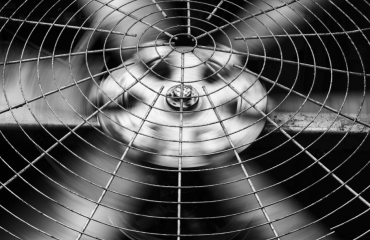Fall, Industry, News, Preventative Maintenance, Spring, Summer, Ventilation, Winter
Commercial Ventilation: The Overlooked Part of HVAC

You feel it when there's a problem with the 'H' (heat) and the 'AC' (air conditioning). But how often do you think about the regularly forgotten part of HVAC: Ventilation? Commercial ventilation plays a crucial part in keeping indoor spaces comfortable and providing good air quality.
Building Ventilation
Protect the people in your building from harmful air contaminants like mold spores and VOC's with a well-maintained ventilation system. Proper building ventilation also results in lower energy costs.
Air Quality
Volatile Organic Compounds, or VOC's, are harmful airborne chemicals, produced by carpeting, paint, copier and printer toner, cleaning products, and many other common office supplies. Your building's HVAC filter will not trap these chemicals. Remove them through the building's ventilation system, or open windows, which isn't always practical because many of today's buildings are built to be airtight.
Humidity Levels
Commercial ventilation systems also regulate your indoor humidity levels. Maintaining proper humidity levels is important not only for the comfort of the people in the building, but for the building itself. Without proper airflow, moisture from the humidity accumulates and leads to mold growth. Mold irritates lungs, and also destroys wood, drywall, carpeting, and many other surfaces in your building.
Lower Energy Costs
Proper humidity levels also result in lower energy costs. High indoor humidity in the summer means running your air conditioner at a lower temperature to compensate. Conversely, humidity levels that are too low will leave you chilly in the winter. Dial in your humidity levels and save on heating and cooling bills.
Common Restaurant Ventilation Problems
Ventilation in a restaurant is crucial. Exhaust hoods regulate the grease, smoke, and steam created in the kitchen, which in turn regulates the comfort and safety of your employees and customers. No one thinks twice when your building's ventilation system works well. But when they fail- your staff and customers definitely notice.
Dirty Exhaust Fan
When your exhaust fan stops working properly, your kitchen will have an excess of smoke and exhaust. The most likely cause of kitchen exhaust fan issues is excess grease buildup on the fan and filter. Regular cleaning of the hood and filters goes a long way in preventing future issues.
Slow Exhaust Fan
If the exhaust fan is clean but you still have a smoky kitchen, take a look at the speed of your fan. It's possible that it simply isn't strong enough to adequately suck up the smoke and steam produced. One possible fix is to increase the speed of the fan by increasing power to the fan motor. If this doesn't fix the problem, or if your fan can't handle any additional power, then it is time to replace your fan motor.
Excessive Heat and Humidity
When your kitchen ventilation isn't working properly, it can affect the temperature in the rest of the restaurant. It's especially noticeable during hot summer months and can cause the air conditioning system to work overtime.
Your kitchen ventilation system delivers fresh air to the kitchen through a make-up air duct, via its own intake fan. When not working properly, too much air is removed through the exhaust and not enough air is replaced through the make-up air duct. This imbalance affects the entire building. This results not only in rising building temperatures, but also high humidity. High humidity levels can lead to moisture and mold issues.
Ventilation = The VIP of HVAC
Now that you know what an important part of the HVAC acronym ventilation is, we trust you will give it the preventative maintenance it deserves. Call today to schedule maintenance, cleaning, or replacement for your commercial ventilation system.
recent posts
categories
archives
- October 2018
- November 2018
- December 2018
- January 2019
- February 2019
- March 2019
- April 2019
- May 2019
- June 2019
- July 2019
- August 2019
- September 2019
- October 2019
- November 2019
- December 2019
- January 2020
- February 2020
- March 2020
- April 2020
- May 2020
- June 2020
- July 2020
- August 2020
- September 2020
- October 2020
- November 2020
- December 2020
- May 2021
- November 2021